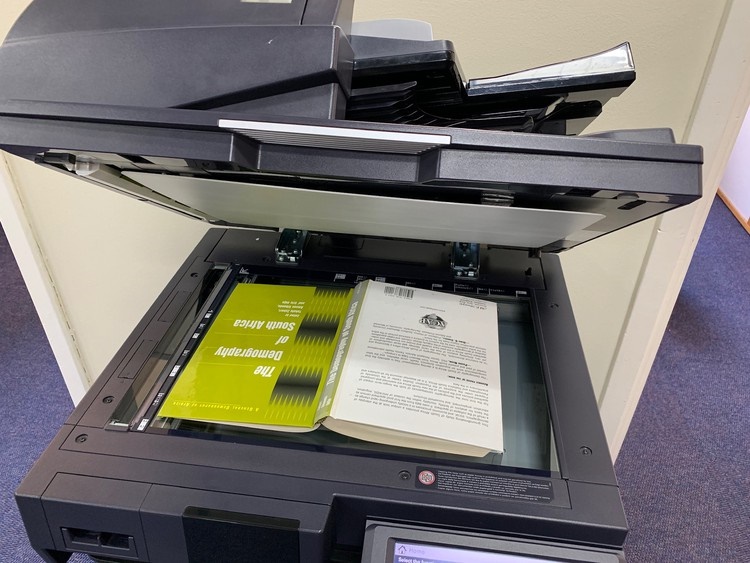
The power of a copyright owner over the use of a work has the potential to inhibit the availability of works, which can be contrary to the public good in some circumstances, writes Owen Dean.
World Intellectual Property Day is observed annually on 26 April to raise awareness about copyright, trademarks, and patented inventions. In this opinion article, I want to focus specifically on copyright.
Copyright is a body of law which provides creators of written and other works with the power to exercise control over the commercial exploitation of their works. The rationale is to place authors in a position to derive material benefits from the fruits of their labours in creating original works, thus providing them with a means of deriving income and incentivising them to create more and better works for the benefit of all.
In practice, this is commonly achieved by enabling authors to charge royalties or fees for the commercial exploitation of their works. Copyright has a limited term or period of protection, whereafter the work falls into the public domain. This is the compact between the state and the creative person brought about by the Copyright Act.
The power conferred on the author in the Copyright Act comes about by the Act granting a bundle of specific exclusive rights to the copyright owner in respect of the work. These rights are known as "restricted acts" and are detailed in sections 6 to 11 of the Copyright Act.
When someone performs a restricted act in relation to a work without the authority of the copyright owner, copyright infringement takes place.
Essence of exceptions
The power (the exclusive rights) of the copyright owner over the use of a work has the potential to inhibit the availability of works, which can be contrary to the public good in some circumstances. Legislators have thus found it desirable to weigh up the private rights of authors against the public interest.
The outcome is that copyright legislators make exceptions to the exclusive right of authors in certain defined circumstances in which it is deemed that the public interest outweighs the merits of the right of authors. Care must be taken in granting exceptions to the authors' rights that those rights are not excessively eroded. It is important not to "kill the goose that lays the golden egg."
An exception encompasses an activity that would in the normal course, constitute an act of copyright infringement. The exception exempts the act from copyright infringement and effectively excises the act in question from the scope of the copyright in the work. It diminishes the scope of the copyright, and thus the content of the owners' immaterial property, correspondingly.
READ | OPINION: Owen Dean - Constitutional Court judgment exposes defects in copyright amendments bill
This system is recognised, approved world-wide, and regulated in various international treaties, the most important of which are the Berne Convention and the Agreement on Trade-Related Aspects of Intellectual Property Right (TRIPS), an instrument of the World Trade Organisation. South Africa is a party to both these international treaties and is bound by them.
Both the Berne Convention and TRIPS provide that the exceptions to authors’ exclusive rights that they countenance must be subject to the so-called “three-step test”, namely (1) they must cover only certain special cases, (2) they must not conflict with the normal exploitation of the work, and (3) they must not unreasonably prejudice the legitimate interests of the rightsholder. Our lawmakers are constrained by Section 231 of the Constitution to give effect to this principle in the Copyright Act and their failure to abide by this principle in legislation would be in breach of the treaties and would be contrary to the Constitution.
It is trite that intellectual property, and copyright in particular, is a form of property falling within the ambit of Section 25 of the Constitution. Copyright is thus protected against arbitrary deprivation. Diminishing the scope of the copyright in a work (by permitting restricted acts) amounts to a partial destruction of that right and, thus a deprivation of property.
In the premises, granting excessive copyright exceptions can offend against the Constitution in two respects, namely, when they fall foul of the three-step test, they amount to abrogation of our international treaty obligations, and they can amount to an arbitrary deprivation of property.
Providing for exceptions
There are basically two systems worldwide for providing exceptions to copyright. They are known as "Fair Dealing" and “Fair Use".
Fair dealing entails the legislation specifying certain activities in relation to a work as qualifying for an exception, subject to the proviso that the conduct in question must constitute a "fair dealing". This immediately calls into mind the three-step test. Fair dealing forms part of the copyright of the overwhelming majority of countries in the world, with the notable exception of the United States of America. It has the merit of certainty because the potential activities that qualify are spelt out in the legislation.
The downside is that the system is inflexible, as only the specified actions are exempted. If new or further exceptions are required, a formal amendment of the legislation is needed, and this can be a drawn-out and cumbersome process.
READ | OPINION: Owen Dean - Use fair or is it? Issues with the Copyright Amendment Bill
Fair use entails giving the court wide discretion to grant an ad hoc exception to just about any infringing act, provided the use of the work in question can be considered to be fair in the prevailing circumstances. Fair use is an American creation, and applies in only a handful of countries, most of which are client states of the US in one way or another. This system amounts in essence to judge made law.
The obvious weakness of the system is that it creates uncertainty. No one knows in advance whether a particular infringement will be excused. This only becomes apparent ex post facto when the final appeal in an infringement case has been determined. The advantage of this system is that it is flexible. New exceptions can theoretically be created on the spur of the moment.
The Copyright Act, 1978 provides for exceptions to copyright. They all comply with the three-step test and are squarely based on the fair dealing principle. While these exceptions were adequate in 1978, they are now insufficient in their ambit and require to be expanded to deal with current circumstances.
Further exemptions
The Copyright Amendment Bill, 2017, laudably seeks to provide for further exemptions. This is sought to be achieved by introducing the fair use principle into the Copyright Act. There is concerted and firm resistance to this innovation in many quarters, including the publishing industry and other sectors involved with the creation of new works. There is the concern that widespread and untrammelled unspecified exceptions will undermine the raison d'etre of copyright and decimate the creative industries.
It is contended that fair use does not comply with the three-step test, which requires legislation to provide more especially for only "certain special cases". In other quarters, which favour free access to all works and regard copyright as an (unwanted) inhibitor of free expression and resources, the move is applauded. The battle lines have been drawn. Around ninety percent of all the prolific public debates and representations to Parliament regarding the Bill have centered on this issue.
Section 13 of the Copyright Act foreshadows that further exemptions might become necessary. It empowers the responsible Minister to create additional special exceptions, by way of regulations, to the restricted act of reproduction, provided they do not conflict with the three-step test. To date, the Minister has used this power to create exceptions in several cases.
But Section 13 has a shortcoming. It is limited to the restricted act of "reproduction”. Its ambit should be extended to all forms of restricted acts. It would merely require a simple amendment. This measure is countenanced by the TRIPS Agreement. It would provide for a solution to the contretemps around the introduction of fair use. Should the fair dealing exceptions provided in the Act be inadequate, the Minister could enact fresh explicit custom-designed new exceptions in regulations.
Regulations do not have to follow the parliamentary process and can be framed and promulgated in a matter of a few months. Draft regulations could be circulated for public comment. New exceptions would not be left to the whim of a judge. Since a regulation would spell out the precise nature of the infringing act being excused, uncertainty would be down to a minimum. The disadvantages and benefits of both the fair dealing and fair use systems would be addressed without the introduction of the unwanted alien doctrine of fair use into our law.
With the resolution of this controversy, the path of the Amendment Bill into legislation will be significantly facilitated. Common sense will have prevailed.
- Prof Owen H Dean is an Emeritus Professor of Intellectual Property Law at the Faculty of Law, Stellenbosch University and was the first incumbent of the Anton Mostert Chair of Intellectual Property Law until 2015. He is currently a Research Fellow at the Chair.
*Want to respond to the columnist? Send your letter or article to opinions@news24.com with your name and town or province. You are welcome to also send a profile picture. We encourage a diversity of voices and views in our readers' submissions and reserve the right not to publish any and all submissions received.
Disclaimer: News24 encourages freedom of speech and the expression of diverse views. The views of columnists published on News24 are therefore their own and do not necessarily represent the views of News24.




 Publications
Publications
 Partners
Partners























